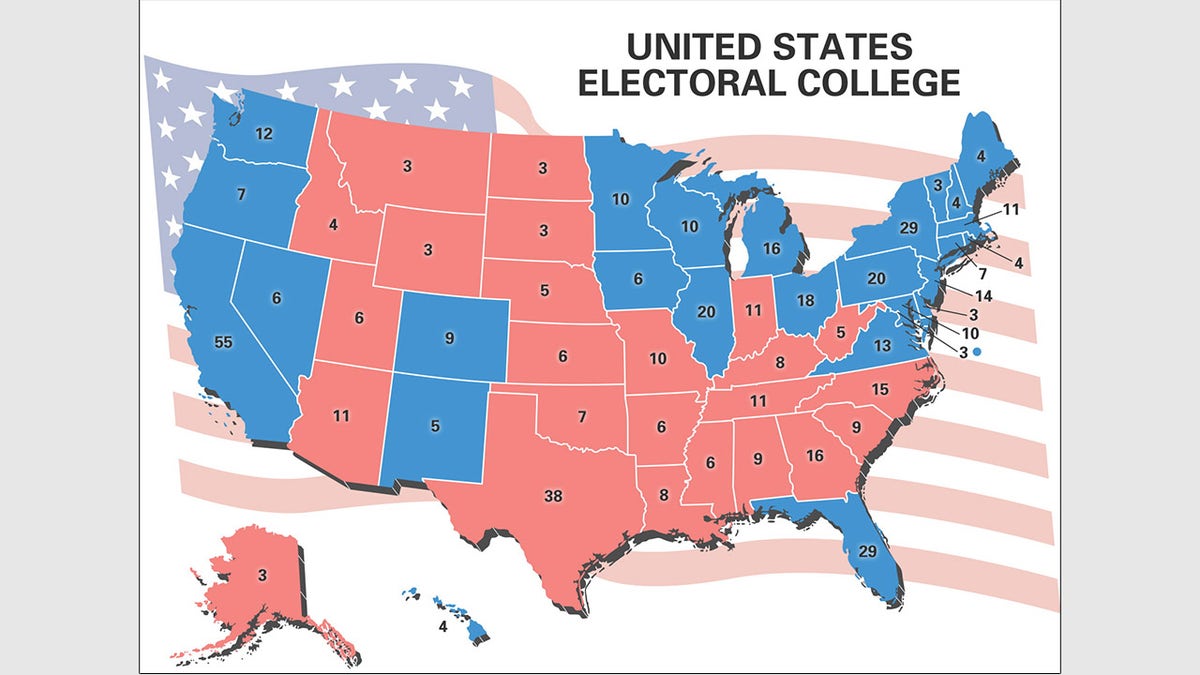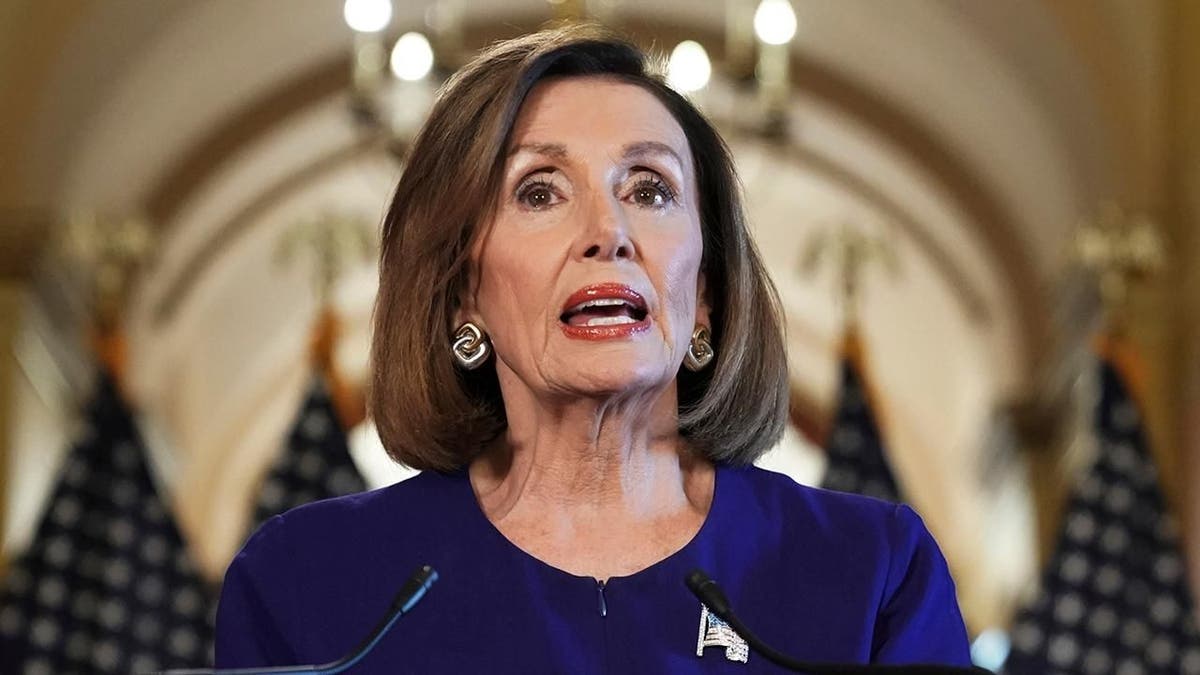Trump 2020 campaign senior adviser lays out the path to 270 electoral votes
David Bossie talks Trump's 'intensity and ferocity' on 'Fox & Friends'
With the 2020 presidential election less than a week away, many are speculating about what would happen if there is a tie in the Electoral College vote.
One possible outcome could be ... President Nancy Pelosi.
Although unlikely, a potential tie is not entirely impossible and does have historical precedent.
The Electoral College consists of 538 votes distributed among all 50 states and Washington, D.C. To become president, a candidate must win a majority of these votes, with 270 being the absolute minimum.
But 538 is an even number, meaning that there could be a scenario in which both candidates receive 269 electoral votes. In that outcome, the vote would go to the U.S. House of Representatives to break the tie.

United States electoral college map showing number of electoral votes by state. (Universal Images Group via Getty Images)
Unlike the number of electoral votes, there are 435 members in the U.S. House of Representatives, meaning that a majority vote is guaranteed. However, each state – and not each representative – gets one vote, based on the party majority.
So, for example, a vote among U.S. representatives from Maryland – which has seven Democrats and one Republican – would go to the Democratic candidate. A vote among U.S. representatives from Florida – which has 13 Democrats and 14 Republicans – would go to the Republican candidate.
Critics say this system is vastly disproportionate given that the Top 10 largest states, which have half the population, would 20% of the vote while the remaining 40 states, with less than half the population, would get 80% of the vote.
PELOSI URGES COLLEAGUES TO PREPARE FOR 2020 PRESIDENTIAL ELECTION REACHING CONGRESS
The vice president, meanwhile, would be chosen by the Senate in the case of a tie. This means that the U.S. could have a Republican president and Democratic vice president.
If the House can't decide on the president, and the Senate has chosen a vice president, then the vice president would become the acting president until the matter was resolved.
If neither the Senate nor the House can pick someone, then the speaker of the House -- in this case, Rep. Nancy Pelosi, D-Calif. -- would become acting president until both chambers of Congress decide on someone.

House Speaker Nancy Pelosi, D-Calif., could become acting president if Tuesday's election results in a Trump-Biden tie and Congress can't quickly decide who should lead the nation.
But a tie in the Electoral College – let alone the speaker of the House becoming acting president – is highly unlikely to happen.
However, an electoral tie did occur in 1800, during the presidential election between Thomas Jefferson and Aaron Burr. The candidates each received 73 electoral votes. (There were fewer states at the time.)
CLICK HERE TO GET THE FOX NEWS APP
The House eventually settled on Jefferson as the nation's third president and Burr as his vice president. This unusual situation led to the passage of the 12th Amendment to prevent a situation in which multiple candidates win a majority of electors.














































